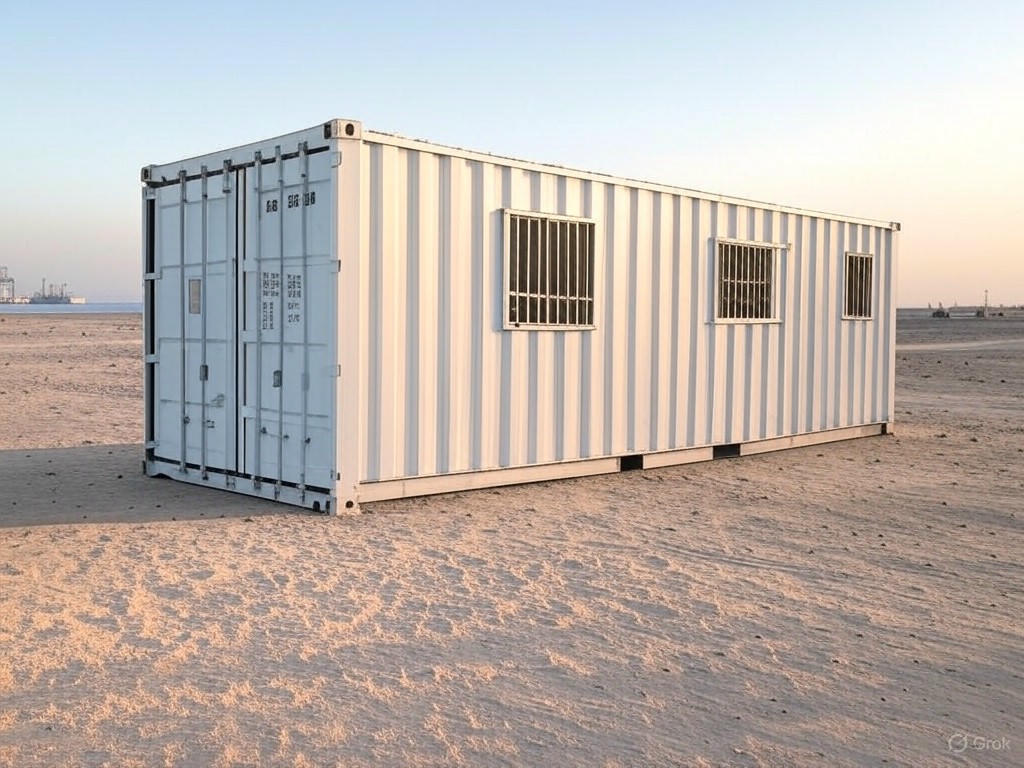In a startling revelation, reports have emerged of deported migrants being held in a repurposed shipping container at a military base in Djibouti, a small nation in the Horn of Africa. These individuals, forcibly removed from their adopted countries, have been confined in this unconventional detention setup for more than two weeks. According to sources familiar with the situation, officers from the U.S. Immigration and Customs Enforcement (ICE) are present at the site, maintaining round-the-clock surveillance over the group. This unusual arrangement has raised eyebrows and sparked debates about the treatment of migrants and the conditions they endure post-deportation.
The use of a shipping container as a holding facility paints a grim picture of the challenges faced by those caught in the complex web of international migration policies. Djibouti, often a transit point for migrants due to its strategic location near conflict zones and migration routes, is no stranger to the influx of displaced individuals. However, the decision to house deportees in such a confined and makeshift space has drawn attention to the broader issues of human rights and dignity. Advocates argue that these conditions are far from humane, pointing to the lack of proper ventilation, limited space, and potential health risks in such an environment. The presence of ICE personnel, tasked with guarding the deportees, further underscores the severity of the situation, suggesting a high level of control and restriction on the individuals’ movements.
Eyewitness accounts and unofficial reports indicate that the deportees, whose nationalities remain undisclosed, are awaiting further processing or transfer to their countries of origin. Yet, the prolonged delay in Djibouti raises questions about logistical hurdles and the coordination between international agencies and local authorities. Some speculate that bureaucratic red tape or diplomatic tensions might be contributing to the extended stay in such inadequate quarters. Meanwhile, the emotional and psychological toll on the deportees cannot be overlooked. Being uprooted from their lives and now confined in a foreign land under harsh conditions, many are likely grappling with uncertainty and despair.
This situation in Djibouti is a stark reminder of the often-overlooked aftermath of deportation. While policies and enforcement actions dominate headlines, the human stories of those affected are frequently sidelined. Humanitarian organizations are beginning to take notice, calling for immediate intervention to ensure that basic standards of care and living conditions are met. There is a pressing need for transparency regarding the treatment of these individuals and clarity on the timeline for their relocation or release.
As the world watches, the plight of these migrants in Djibouti serves as a call to action for policymakers and global leaders. It highlights the urgent need for compassionate and sustainable solutions to address migration challenges. Ensuring dignity and respect for all, regardless of legal status, must remain a priority. Only through collaborative efforts can we hope to prevent such distressing scenarios from becoming the norm in the future.
